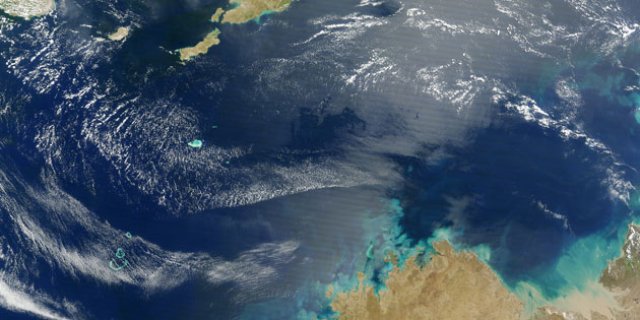
Australian activists have written to Prime Minister Tony Abbott calling on him to recognise East Timor's rights under international law to oil and gas resources in the Timor Sea.
The Melbourne-based Timor Sea Justice Campaign is calling on Australia to “enter discussions about the establishment of permanent maritime boundaries in accordance with current international law. In situations such as this, current international law overwhelmingly favors a ‘median line’ solution – a line halfway between the two coastlines.”
East Timor is seeking to re-open negotiations on the share of the oil and gas resource revenue in the Timor Sea.
Just two months before East Timor's independence in 2002, Australia withdrew recognition of the maritime boundary jurisdiction of the International Court of Justice and the International Tribunal of the Laws of the Sea.
Under these international laws, East Timor would have been entitled to all the oil and gas resources up to the median point between Australia and itself. However, with its more powerful neighbour refusing to abide by these laws, the new and impoverished nation was forced to agree to treaties which meant it received a much smaller proportion of revenues from those resources.
“Timor is not asking for charity; they are only asking for what they are legally entitled to, no more and no less,” Timor Sea Justice Campaign spokesperson Tom Clarke told Green Left Weekly. “Successive Australian governments have short-changed East Timor out of billions of dollars in government revenues from gas and oil resources.
“We're encouraging all fair-minded Australians to participate in the campaign, beginning with things like writing to their local MPs. East Timor's history shows us that a groundswell of Australian support can change government policy at important moments like this.”
Clarke told GLW he was encouraged that 45 people came to a January 23 organising meeting for the campaign. The open letter is available for supporters to sign at Timor Sea Justice.
The 2006 Certain Maritime Arrangements in the Timor Sea (CMATS) treaty is the matter which East Timor most needs to re-open for a better resolution. This governs the exploitation of the Greater Sunrise oil and gas field, which is expected to generate up to $40 billion in government revenues.
Under CMATS, the revenue is split 50-50, despite the field lying entirely on East Timor's side of the median line. Other resources in the disputed zone are already depleted, or will be within a few years.
When an Australian intelligence operative whistleblower leaked the information that Australia had spied on the East Timorese negotiating team, East Timor invoked an arbitration process from the 2002 Timor Sea Treaty to take the matter to an international arbitration.
The office and home of East Timor's lawyer, Bernard Collaery, were raided by Australian intelligence forces last year and documents relating to the case confiscated on “national security” grounds. The whistleblower's home was also raided and his passport confiscated, preventing him from attending the The Hague where he was to be a witness.
During the ICJ proceedings, East Timor demanded that Australia return the documents. East Timorese spokesman Agio Pereira told AFP: "It's simple, we're asking for our documents back. Australia has unlawfully taken documents that are rightfully the property of Timor-Leste.”
Australia said the documents are sensitive because they reveal the identities of intelligence operatives. This strategy is also an attempt to move the spotlight away from the issue that prompted the whistleblower to step forward in the first place.
That issue is that former foreign minister Alexander Downer, who ordered the spying, and led the Australian negotiations with East Timor, now works as an advisor to Woodside Petroleum, the Australian company that benefits from the exploitation of the Greater Sunrise field.
This is the development that the unnamed whistleblower said turned his unease at the spying on behalf of corporate interests into a resolve to act. ABC Radio National reported in December that Collaery says the whistleblower acted because he felt that “what he did wasn't in the Australian national interest, but was in fact to benefit a corporate big oil and gas company's interests.”